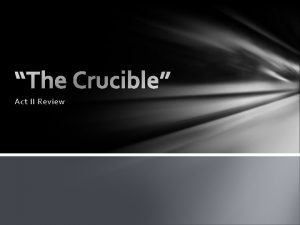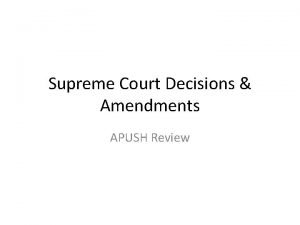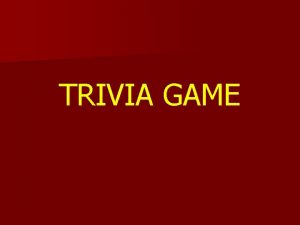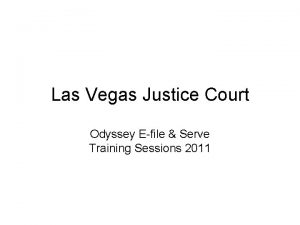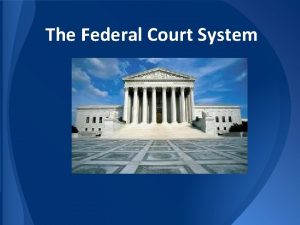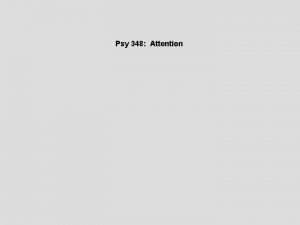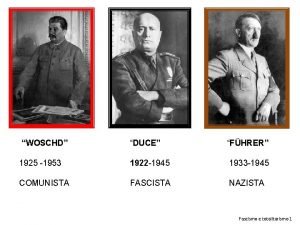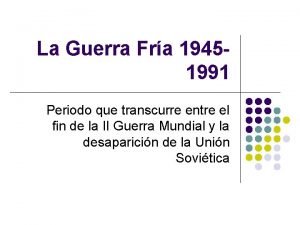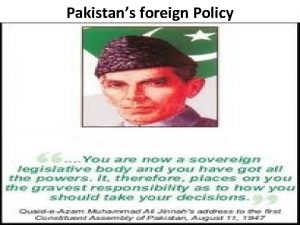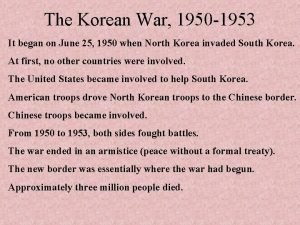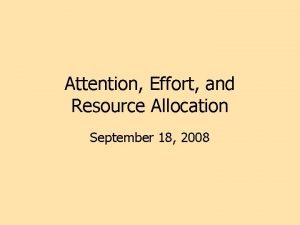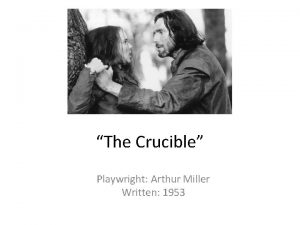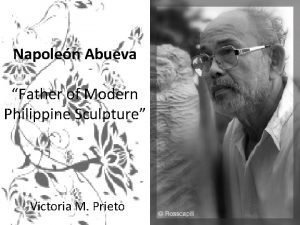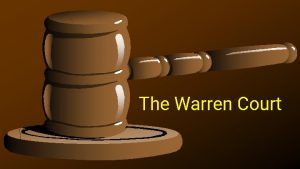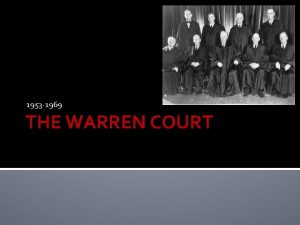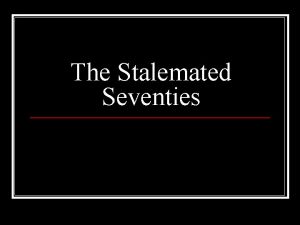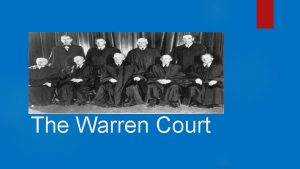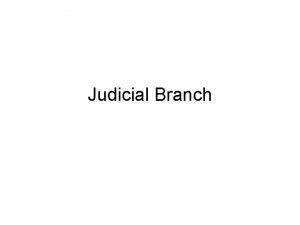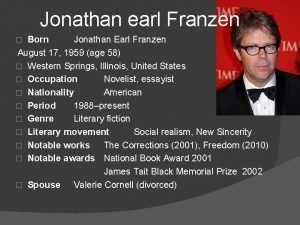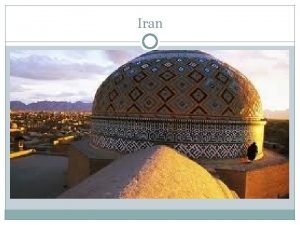The Warren Court 1953 1969 Chief Justice Earl















- Slides: 15

The Warren Court • • 1953 – 1969 Chief Justice Earl Warren Liberal decisions Supported the rights of the individual, especially those that are accused of crimes

Warren Court Decisions

Gideon v. Wainwright (1963) • Gideon could not afford attorney; state would provide only in case of capital offense • 6 th – right to counsel & 14 th - equal protection • States must provide attorney to all in felony & capital cases

Miranda v. Arizona (1966) • Miranda was convicted of rape & kidnapping based on statements he made to police • 5 th- remain silent; 6 th – right to counsel; 14 th – equal protection • Police must inform suspects of their rights before questioning: the Miranda Warnings

Miranda Warning • “You have the right to remain silent. Anything you say can and will be used against you in a court of law. You have the right to have an attorney present during questioning. If you cannot afford an attorney, one will be appointed for you. ”

Griswold v Connecticut (1965) • Griswold convicted of giving birth control counseling to married couples • 1 st, 3 rd, 4 th, and 9 th amendments together give married couples a right to privacy • Ruling states that states cannot try to prevent a woman’s access to birth control

Escobedo v Illinois (1964) • Escobedo and lawyer were prevented from seeing each other during his questioning • Ends up confessing to murder • Right to a lawyer during questioning

Mapp v. Ohio (1961) • Search of Mapp’s house for betting slips uncovered obscene materials • 4 th Amendment – protects against unreasonable search & seizure • People are protected against unwarranted search and seizure – specific search warrant

Texas v Johnson (1989) • Johnson burned flag in protest of Reagan administration • Arrested for desecration of a flag • Supreme Court classifies this as expressive conduct - freedom of speech

Baker v. Carr (1962) • Legislative reapportionment (redistricting) had not taken place • 14 th Amendment – equal representation • Allowed the judicial system to intervene in cases where district lines are disputedgerrymandering, population miscalculation, etc.

Reynolds v Sims • Voters from Jefferson, Alabama challenged the apportionment of the state legislature • Argued certain districts had smaller populations than others giving some voters more power • 14 th Amendment • “One man, one vote”- voting should be based on population size, not geographic size

Roe v Wade (1973) • Roe lived in Texas and wanted to abort her pregnancy- but only life threatening cases were allowed • Supreme Court decides that women can abort through first trimester (14 weeks) due to privacy rights

Tinker v. Des Moines School District (1969) • Marybeth & John Tinker were not allowed to wear black armbands to school to protest the war in Vietnam • 1 st Amendment – free speech • Even students have rights – free, silent, symbolic speech … “don’t shed their rights at the schoolhouse gate” – as long as it doesn’t interfere with the educational process

Engle v Vitale (1962) • New York tried to establish a voluntary, nondenominational prayer in schools • No prayer in schools allowed- by offering that time you are approving of religion in school

Regents of University of California v. Bakke (1978) • Bakke denied admittance twice to medical program. Out of 100 slots, 16 were saved for minority students • Bakke argued affirmative action led to reverse discrimination • Colleges can consider race but not have strict quotas
 What duty was mary warren performing in the court
What duty was mary warren performing in the court Apush supreme court cases
Apush supreme court cases Lesson 3 commander in chief and chief diplomat
Lesson 3 commander in chief and chief diplomat Is there a basketball court above the supreme court
Is there a basketball court above the supreme court Odyssey file and serve las vegas
Odyssey file and serve las vegas Supreme court justice system
Supreme court justice system Anne triesman
Anne triesman 1953-1922
1953-1922 La maxima tension 1947 y 1953
La maxima tension 1947 y 1953 Fahrenheit 451 1953
Fahrenheit 451 1953 Alignment with west 1953-62
Alignment with west 1953-62 1953
1953 Negative priming
Negative priming The crucible 1953
The crucible 1953 War of the worlds 1953
War of the worlds 1953 Who is the father of modern philippine sculpture
Who is the father of modern philippine sculpture
